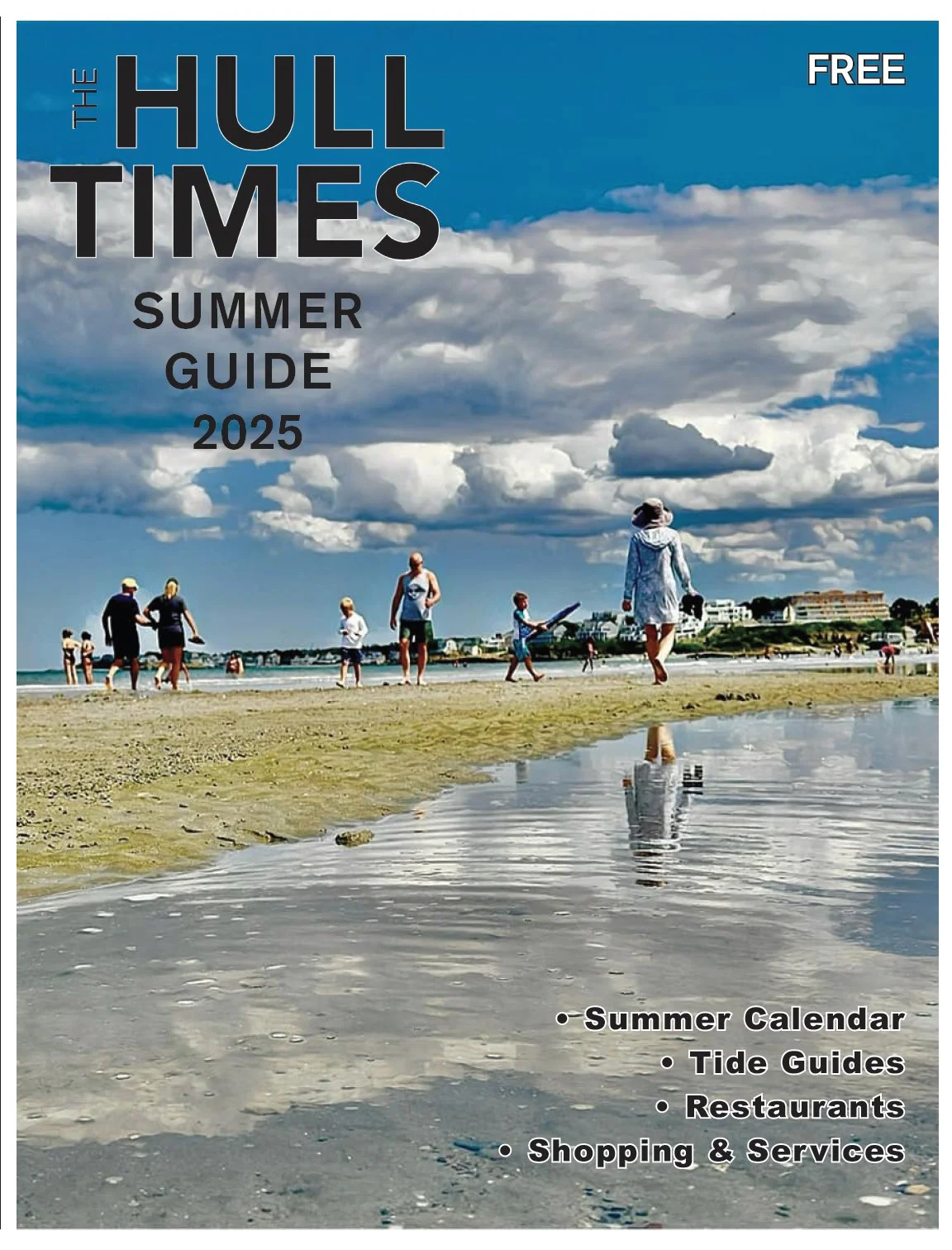Town seeks comments on plan to protect Hull from climate change, rising seas
/By Carol Britton Meyer
* * ONLINE EXCLUSIVE * *
As a peninsula, the town of Hull is vulnerable to a variety of hazards, including Nor’easters, floods, extreme precipitation, and severe winter weather, punctuated by the king tide flooding that occurred on January 10 and 13.
These events, respectively, marked the seventh and fourth highest level of high tides on record for Boston Harbor. The term “king tide,” or spring tide, refers to exceptionally high tides that occur during a new or full moon.
Interested residents can weigh in on the town’s draft Hazard Mitigation Plan to address these issues on Thursday, April 18, at 7 p.m. At the meeting, Climate Adaptation and Conservation Department Director Chris Krahforst will make a final presentation in the Hull High School second-floor Exhibition Room at 180 Main St.
The five-year plan – which, once completed, will put the town in a better position to seek related grants – is a cooperative effort with the Metropolitan Area Planning Council and the climate adaptation committee.
A roadmap for moving ahead
“This will provide a roadmap for the town moving forward, spelling out how we plan to mitigate different hazards and forming the root of a lot of our grant applications – including ones related to seawall projects,” Krahforst told the select board Wednesday, April 3.
The plan outlines 53 mitigation measures related to flooding, coastal areas, wind, earthquake, extreme temperature, drought, climate resilience/adaptation, and other issues and considerations.
These include adopting a floodplain management plan, which will go before the May 6 town meeting; improving the high-water barrier adjacent to Moreland Avenue, Bay Street, and Hampton Circle; maintaining/repairing/reconstructing the Pemberton seawall and maintaining and repairing the Harborview Road seawall; evaluating alternative power transmission feed to Hull; identifying alternate locations for a new Hull public safety building, and raising some roads to help prevent flooding.
“We have tremendous hazards around us 24/7,” select board Chair Greg Grey said to Krahforst. “Keep up the good work!”
The deadline for submitting the plan to the Federal Emergency Management Agency is coming up soon. “The plan needs to be approved by July or August,” Krahforst said.
In September 2022, the select board supported the creation of a Climate Adaptation Committee and a Climate Adaptation Working Group “to strengthen the community and promote civic engagement through informed and coordinated policy development for climate change adaptation” at Krahforst’s request.
The committee is charged with reviewing new climate change information and the town’s adaptation policies, projects, and future plans, to receive an annual progress report from the working group, and to provide feedback and input.
The overall goal is to discuss ways to mitigate the impacts of flooding and other consequences of climate change and sea level rise on Hull and to educate the public.
Questions and comments about the draft Hazard Mitigation Plan, which is posted here, may be emailed to ResilientHull@mapc.org.
Like what you’re reading? Stay informed with a Hull Times subscription by clicking here.
Do you have an opinion on this issue? Click here to write a Letter to the Editor.












